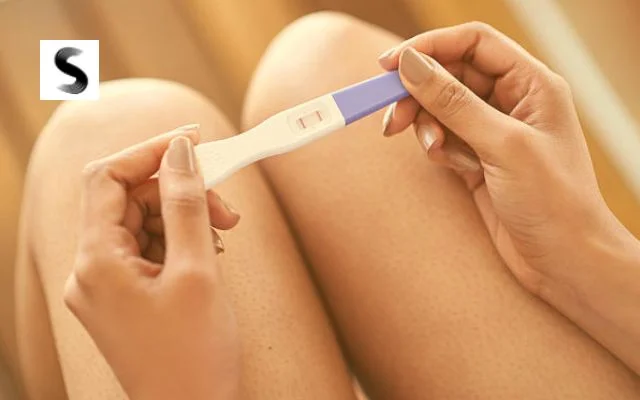What are the odds of getting pregnant a week before your period?
Although the chances of getting pregnant a week before your period are relatively low, it’s still possible. The fertile window can shift based on stress, irregular menstrual cycles, and other health issues.
Dispelling myths about fertility and the menstrual cycle
There are many misconceptions surrounding fertility and the menstrual cycle. For example, some believe getting pregnant just before your period is impossible. However, as discussed in this article, that’s not always the case.
Introducing real-life stories of women who experienced unexpected pregnancies
In this article, we’ll share inspiring stories of women who defied the odds and became pregnant just a week before their period. Their experiences can offer hope and encouragement to others facing similar challenges.
Understanding the Female Reproductive System
The menstrual cycle explained
The menstrual cycle typically lasts between 21 and 35 days, with an average of 28 days. It involves a series of hormonal changes that prepare the body for pregnancy. The cycle can be divided into four main phases: the follicular phase, ovulation, the luteal phase, and menstruation.
The Role of Hormones in Conception
Hormones are crucial in regulating the menstrual cycle and the ability to conceive. Estrogen, progesterone, luteinizing hormone (LH), and follicle-stimulating hormone (FSH) all work together to control the maturation of eggs and the release of a mature egg during ovulation.
The fertile window: when is the best time to conceive?
The fertile window is when a woman is most likely to conceive. This window typically occurs five days before ovulation and on the day of ovulation itself. However, this window can vary depending on stress, illness, or irregular cycles.
Factors That Can Affect Conception
Stress and its Impact on Fertility
Stress can negatively affect fertility by disrupting hormonal balance and potentially delaying or preventing ovulation. Managing stress through relaxation techniques, exercise, and maintaining a healthy lifestyle can help improve fertility.
Irregular menstrual cycles and ovulation
Irregular cycles can make predicting ovulation challenging and identifying the fertile window challenging. If you have irregular cycles, monitoring your body’s signs of ovulation and consulting with a healthcare professional to determine the cause and potential solutions is essential.
The role of pre-existing medical conditions
Certain medical conditions, such as polycystic ovary syndrome (PCOS) or endometriosis, can impact fertility. If you have a pre-existing condition, working with a healthcare professional to manage it can improve your chances of conception.
Stories of Unexpected Pregnancies
Emma’s Story: a surprise on a romantic getaway
Emma and her husband decided to take a romantic trip to Paris. Despite being just a week away from her period, Emma discovered she was pregnant during their getaway. The unexpected news brought joy and excitement to their relationship.
Sarah’s Story: conceiving after giving up hope
After years of trying to conceive without success, Sarah and her partner decided to stop actively trying. To their astonishment, Sarah became pregnant just a week before her period was due. The couple was thrilled and welcomed their baby with open arms.
Maria’s Story: an unforgettable anniversary gift
Maria and her husband celebrated their fifth wedding anniversary with a weekend getaway. Just a week before her period, Maria found out she was pregnant. The couple couldn’t have asked for a better anniversary present.
Olivia’s Story: defying medical odds
Despite being diagnosed with PCOS and struggling with irregular periods, Olivia became pregnant just a week before her period was due. She was overwhelmed with joy; Olivia and her partner prepared for their unexpected miracle.
Lily’s Story: the baby that changed everything
Lily and her partner had been trying to conceive for years. Just when they were about to give up, Lily discovered she was pregnant a week before her period. The news brought renewed hope and happiness to their lives.
Zoe’s Story: a dream come true after years of trying
After years of infertility struggles, Zoe became pregnant just a week before her period was due. The couple was overjoyed and grateful for their long-awaited miracle.
Grace’s Story: love at first sight
Grace, a single woman, discovered she was pregnant just a week before her period. Although the pregnancy was unexpected, Grace embraced the challenge and
Fell in love with her baby from the moment she found out. With the support of her friends and family, she prepared to welcome her little miracle into the world.
How to Track Your Fertility
Basal body temperature charting
Tracking your basal body temperature (BBT) can help you identify your fertile window. By monitoring your temperature daily and noting any fluctuations, you can determine when ovulation will likely occur.
Ovulation predictor kits
Ovulation predictor kits (OPKs) are another valuable tool for tracking fertility. These kits detect the luteinizing hormone (LH) surge just before ovulation, helping you pinpoint your most fertile days.
Fertility awareness methods
Fertility awareness methods (FAMs) involve tracking your menstrual cycle, cervical mucus changes, and BBT to identify your fertile window. You can increase your chances of conceiving by becoming more in tune with your body’s natural signals.
Fertility apps and trackers
Numerous fertility apps and trackers help you monitor your cycle and predict your fertile window. These tools can provide valuable insights and reminders to help you on your journey to conception.
Preparing for Pregnancy

Prenatal vitamins and supplements
Taking prenatal vitamins and supplements, such as folic acid, can help ensure your body has the nutrients for a healthy pregnancy. It’s essential to start taking these supplements before trying to conceive.
Creating a healthy lifestyle for conception
Maintaining a healthy lifestyle, including a balanced diet, regular exercise, and avoiding smoking and excessive alcohol consumption, can improve your fertility and overall health during pregnancy.
The importance of preconception medical checkups
Preconception checkups can help identify any underlying health issues or concerns that may impact your ability to conceive. Working with a healthcare professional can help you address these concerns and optimize your chances of a healthy pregnancy.
Coping with Unexpected Pregnancies

Emotional and mental health considerations
Unexpected pregnancies can bring a mix of emotions, from excitement to fear. Acknowledging your feelings and seeking support from friends, family, or a mental health professional is essential.
Financial planning for a new addition
Preparing for a baby involves financial planning, including budgeting for prenatal care, supplies, and potential childcare expenses. Early planning can ease financial stress and prepare you for your new addition.
Communicating with your partner
Open and honest communication with your partner is vital during an unexpected pregnancy. Sharing your feelings, concerns, and plans can help strengthen your bond and ensure you’re both on the same page.
The Role of Support Networks
Online forums and communities
Online forums and communities can offer valuable support, advice, and camaraderie for those experiencing unexpected pregnancies. Connecting with others who have been through similar experiences can provide reassurance and understanding.
Friends and family: the importance of a robust support system
Your friends and family can provide essential emotional and practical support during pregnancy. Don’t be afraid to lean on them and share your feelings and concerns.
Local support groups and meetups
Many communities offer local support groups and meetups for expectant parents. These groups provide a safe space to discuss your experiences, ask questions, and form connections with others in similar situations.
The Journey of Pregnancy

Coping with morning sickness and other pregnancy symptoms
Morning sickness, fatigue, and other pregnancy symptoms can be challenging to manage. Seeking advice from your healthcare provider and implementing self-care strategies can help make your pregnancy journey more comfortable.
Prenatal care and regular checkups
Regular prenatal care and checkups are essential for ensuring your and your baby’s health. These visits allow your healthcare provider to monitor your pregnancy’s progress, address any concerns, and provide guidance on maintaining a healthy pregnancy.
Preparing for labor and delivery
As your pregnancy progresses, preparing for labor and delivery is essential. This may include attending childbirth classes, creating a birth plan, and discussing pain management options with your healthcare provider.
Conclusion
Life is full of surprises, and unexpected pregnancies are no exception. Embracing these incredible miracles can bring newfound joy and happiness to your life.
Sharing personal stories of unexpected pregnancies can provide hope, encouragement, and support to others facing similar challenges. These stories remind us that miracles can happen, even when the odds seem stacked against us.
Open conversations about fertility and conception can help dispel myths, increase understanding, and foster a supportive environment for those experiencing unexpected pregnancies. By sharing our experiences and knowledge, we can empower and uplift one another on the journey to parenthood.
FAQs:
Can I get pregnant a week before my period?
Yes, it’s possible, though the chances are relatively low. Stress, irregular cycles, and health issues can impact your fertile window, making conception possible a week before your period.
How do I know if I’m pregnant?
Common early pregnancy symptoms include missed periods, breast tenderness, increased urination, and nausea. However, the only way to confirm a pregnancy is through a pregnancy test or medical examination.
Can I still get my period if I’m pregnant?
Experiencing bleeding during pregnancy is relatively standard, but it’s not the same as a regular period. If you experience bleeding during pregnancy, consult your healthcare provider to determine the cause.
What should I do if I think I’m pregnant?
If you suspect you’re pregnant, take a home pregnancy test. If the test is positive or you’re still uncertain, schedule an appointment with your healthcare provider to confirm the pregnancy and begin prenatal care.
What are some early signs of pregnancy?
Early pregnancy signs may include a missed period, breast tenderness, fatigue, nausea, increased urination, and mood swings. However, these symptoms can also occur for other reasons, so confirming your pregnancy with a test or medical examination is essential.
How can I improve my chances of conceiving?
Improving your chances of conception involves maintaining a healthy lifestyle, tracking your fertility, and seeking preconception medical care. Also, managing stress and addressing any underlying health concerns can improve fertility.
Can stress affect my fertility?
Stress can negatively impact fertility by disrupting hormonal balance and potentially delaying or preventing ovulation. Managing stress through relaxation techniques, exercise, and maintaining a healthy lifestyle can help improve fertility.
